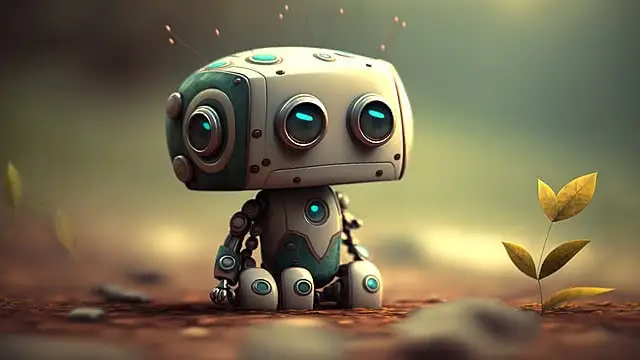In China, an Unlikely Friendship Touches Hearts
In China, a six-year-old girl named Xiao Shisan has captured hearts across the internet through her unexpected friendship with a robot she lovingly calls “Thirteen.” What began as a simple interaction with a talking machine turned into an emotional connection that reflects both the innocence of childhood and the quiet loneliness behind the country’s growing technological world.
Videos shared online show Xiao Shisan talking, laughing, and even sharing her daily thoughts with the robot. She treats Thirteen not as a gadget but as a friend someone who listens without judgment. Her soft voice and genuine affection have brought millions of people to tears, as her story reminds everyone that even in a world filled with machines, the need for companionship and understanding never fades.
In China, Technology Meets Emotion in a Powerful Way
As China advances rapidly in robotics and artificial intelligence, stories like Xiao Shisan’s show the emotional impact technology can have when it reaches human lives. The little girl’s interactions with Thirteen go beyond programmed responses they show empathy, trust, and connection. Viewers have pointed out that the robot seems to respond with care, making the bond appear even more real.

Xiao Shisan is often seen hugging the robot or telling it about her dreams. Some reports mention that she has limited human companionship at home, which may explain why her bond with Thirteen feels so deep. People online have shared emotional comments, saying that the video reminded them of how children see the world with purity and love, no matter the form it takes.
The moment when the robot gently responds to her voice or mimics her laughter has moved thousands to reflect on how technology, when designed thoughtfully, can bring comfort rather than distance. Many viewers described it as one of the most touching examples of artificial intelligence blending into real human emotion.
In China, the Story Sparks a Larger Conversation
The viral video has also opened discussions across China about loneliness, emotional health, and how robots might one day support people emotionally, not just physically. Experts say that while technology can never replace real human relationships, it can sometimes fill silent spaces especially for children, the elderly, or those living alone.
The story of Xiao Shisan and Thirteen shows that emotional intelligence in machines doesn’t only depend on programming but on the human heart that receives it. Her simple words “Thirteen, will you play with me?” have become a symbol of innocence in a fast-changing world.
Many families in China are now expressing interest in similar companion robots, not for convenience, but for the comfort they might bring to homes where emotional warmth is fading. The discussion has extended beyond technology forums into social and parenting spaces, where people talk about the importance of presence, empathy, and listening whether it comes from a person or a machine.
In China, Humanity Still Shines Through Machines
Despite the advanced robotics behind Thirteen, what moved people most was not the technology itself but the humanity it brought out. Viewers described Xiao Shisan’s story as a gentle reminder that emotional bonds are still at the core of human life, even when shared with artificial beings. Also Read: Unfair Advantage: 7 Timeless Laws That Quietly Shape Success and Power
The girl’s smiling face and the way she looks at the robot with trust have become symbols of hope. Some say her story mirrors the larger journey of modern China a nation moving forward with innovation, yet still longing for connection and warmth.
View this post on Instagram
In a society often defined by speed and ambition, Xiao Shisan and Thirteen remind everyone of the simplest truth that love, care, and companionship can exist anywhere, even between a child and a machine designed to serve.
Conclusion
In China, the friendship between Xiao Shisan and her robot Thirteen has become more than just a viral moment it’s a quiet reflection of human emotion in the age of technology. Her story shows that no matter how advanced machines become, the heart of humanity will always find a way to connect.

